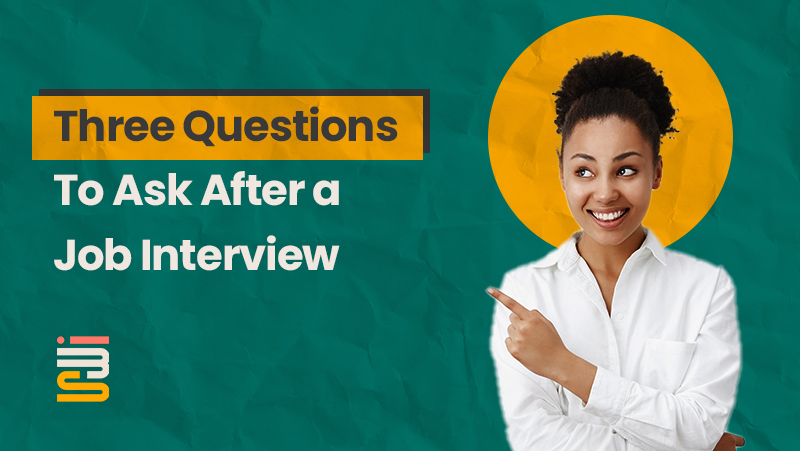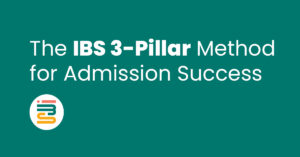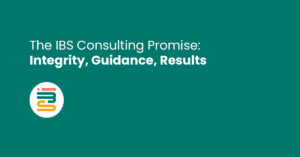After a job interview, it’s your turn to ask questions. Discover three essential questions to ask after a job interview to make a lasting impression and gain valuable insights into the company’s culture, expectations, and growth opportunities.
Read more: Job Interview Coaching
Clarifying the Next Steps
Attempting the post-interview phase requires strategic questioning to gain clarity on what comes next. Ensure you’re prepared with insightful follow-up inquiries to understand the anticipated timeline and the follow-up process.
Anticipated Timeline
Understanding the anticipated timeline for the hiring process is essential for candidates. Typically, after the initial interview, there may be subsequent rounds, such as second interviews or assessments. Following these stages, there’s often a period for deliberation and decision-making by the hiring team.
Factors such as the number of applicants, internal processes, and external circumstances can influence the timeline. Communicating with the employer or recruiter can provide insights into when to expect updates.
Additionally, expressing your availability and flexibility can demonstrate your commitment and interest in the role while respecting the organization’s process.
Follow-Up Process
The follow-up process after a job interview is a critical step in maintaining communication with the employer and expressing continued interest in the position.
It typically involves sending a thank-you email or letter to the interviewer(s) within 24-48 hours of the interview. In this message, express gratitude for the opportunity, reiterate your enthusiasm for the role, and briefly summarize key points discussed during the interview.
Additionally, inquire about the timeline for decision-making and express your availability for any further discussions or assessments.
Curious about the benefits of elevating your career to the next level? Reach out to IBS Consulting and book your FREE consultation to discover more!
Book Your Free Consultation
Following up demonstrates professionalism, reinforces your interest in the position, and keeps you on the employer’s radar during the decision-making process.
Understanding the Role and Team
Ask in detail the specifics of the role and team dynamics by asking pertinent questions. Gain insight into your daily responsibilities and the dynamics of the team you’ll be working with.
Read Also: Study Digital Marketing Abroad
Daily Responsibilities
Understanding the daily responsibilities of a job role is essential for both candidates and employers. Daily responsibilities refer to the tasks, duties, and activities that an employee is expected to perform as part of their job on a regular basis.
These responsibilities can vary widely depending on the nature of the role and the industry. They may include activities such as project management, client communication, data analysis, customer service, administrative tasks, or technical duties.
Understanding these responsibilities allows candidates to assess their suitability for the role and prepare accordingly, while employers can ensure alignment between the job requirements and candidate skills. Clear communication of daily responsibilities helps set expectations and fosters success in the role.
Team Dynamics
Explore the characteristics of the team by asking about collaboration styles, communication channels, and the overall culture. Understand how your role fits within the team structure and how you can contribute effectively to achieve team goals. These questions demonstrate your interest in the role and your readiness to integrate seamlessly into the team.
Read Also: Job Opportunities in the USA for Ghanaians
Learning About the Company Culture
Gain insights into the company’s culture to ensure it aligns with your values and work preferences. Ask about the company’s values and mission, as well as their approach to work-life balance.
Values and Mission
The values and mission of a company are foundational to its identity and culture. Values represent the core principles and beliefs that guide the organization’s decisions, actions, and interactions.
They reflect what the company stands for and the behaviors it expects from its employees. Mission, on the other hand, outlines the company’s purpose, objectives, and overarching goals. It defines why the organization exists and the impact it seeks to make in the world.
Understanding a company’s values and mission is crucial for job seekers to assess cultural fit and alignment with personal beliefs and career aspirations. It also enables employees to contribute meaningfully to the company’s mission and work towards common goals.
Work-Life Balance
Interested in learning more about the benefits of professional development? Call IBS Consulting to schedule a FREE consultation right away!
Book Your Free Consultation
Explore the company’s stance on work-life balance to determine if it supports your lifestyle and professional needs. Ask about flexible work arrangements, remote work policies, and opportunities for personal development to ensure a healthy work-life integration.
These questions help you gauge the company’s culture and determine if it’s the right fit for you.
Considering Career Growth
Explore opportunities for professional development and advancement within the organization. Ask insightful questions about training programs, career advancement paths, and opportunities for growth.
Training and Development
Inquire about the company’s commitment to employee development through training programs, workshops, and skill-building initiatives. Understand how they support ongoing learning and skill enhancement to help you thrive in your role.
Opportunities for Advancement
Gain clarity on the potential for career advancement within the company. Ask about promotion criteria, internal job postings, and mentorship opportunities to understand how you can progress and grow professionally within the organization.
These questions demonstrate your ambition and commitment to long-term career success.
Read Also: How to Stand Out in a Competitive Job Market
Discussing Compensation and Benefits
Engage in discussions about compensation packages and employee benefits to ensure they meet your expectations and needs. Prepare questions about salary, perks, and remote work policies to gain a comprehensive understanding of the offer.
Salary and Perks
Inquire about the salary structure, including base pay, bonuses, and incentives, to ensure fair compensation for your skills and experience.
Additionally, ask about other perks such as healthcare benefits, retirement plans, and employee discounts to assess the overall value of the compensation package.
Remote Work Policies
Understand the company’s policies regarding remote work, especially in light of recent changes due to the pandemic. Ask about expectations for remote work arrangements, communication protocols, and technology support to ensure a seamless transition to remote work if necessary.
These questions help you make informed decisions about compensation and evaluate the company’s flexibility and support for remote work.
Evaluating Fit and Interest Level
Assess your compatibility with the company culture and gauge your interest in the role by asking targeted questions. Explore how your skills and values align with the organization’s mission and vision to ensure a strong fit.
Areas for Contribution
Identify potential areas where you can make meaningful contributions to the organization’s goals and objectives. Inquire about specific projects or initiatives where your skills and expertise can add value, demonstrating your proactive approach and enthusiasm for the role.
Response to Current Events
Understand how the company is responding to current events, such as industry trends or global challenges like the COVID-19 pandemic.
>Contact us
Ask about contingency plans, adaptation strategies, and opportunities for innovation to assess the company’s resilience and readiness to navigate changing circumstances.
Read more: How to Check in After An Interview?
Conclusion
These questions to ask after a job interview will help you evaluate the company’s alignment with your values and priorities while demonstrating your interest in contributing positively to its success.
Encourage readers to take the next step in their career journey by booking a free consultation to further explore their opportunities and refine their strategies for success.
This personalized consultation offers tailored guidance and support, helping individuals navigate their job search with confidence and clarity.
Don’t miss out on this opportunity to elevate your career prospects – book your free consultation today and take the first step towards achieving your professional goals.
FAQs
What questions should I ask after a job interview?
After a job interview, it’s crucial to ask questions that demonstrate your interest in the role and the company. Consider inquiring about the next steps in the hiring process, the company culture, opportunities for growth, and clarification on any aspects of the role or organization that were discussed during the interview.
How can I effectively follow up after a job interview?
A thoughtful follow-up email expressing gratitude for the opportunity, reiterating your interest in the position, and briefly highlighting key points discussed during the interview is an effective way to follow up. It’s also beneficial to ask about the timeline for decision-making and express your willingness to provide any additional information if needed.
What should I do if I don’t hear back after a job interview?
If you haven’t heard back within the expected timeframe, it’s appropriate to send a polite follow-up email to inquire about the status of your application. Express your continued interest in the position and ask if there’s any additional information you can provide to assist with the decision-making process.
How can I assess company culture during a job interview?
To assess company culture, pay attention to cues during the interview process such as how employees interact, the company’s values and mission, and any insights shared by the interviewer about the work environment. Additionally, consider asking specific questions about company culture, team dynamics, and work-life balance.
What should I do if I receive a job offer?
If you receive a job offer, take time to carefully review the terms and conditions, including salary, benefits, and any additional perks offered. Consider whether the role aligns with your career goals and values. If you have any questions or concerns about the offer, don’t hesitate to ask for clarification before making a decision.





